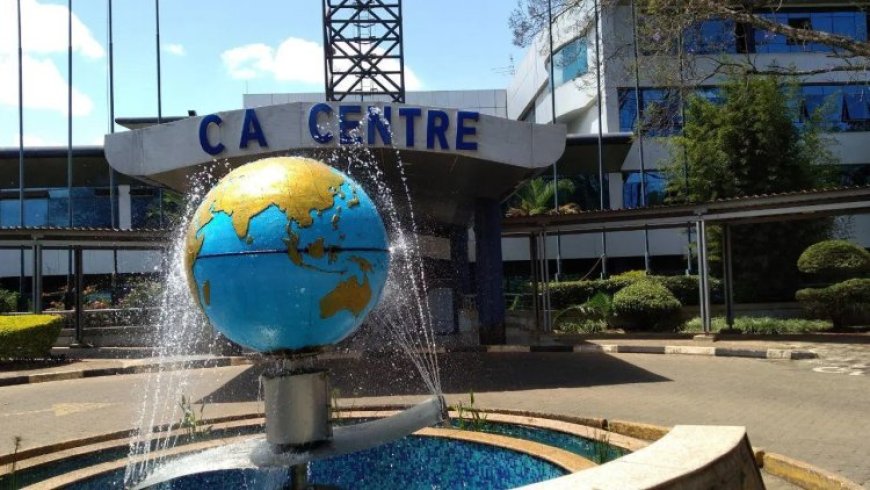Kenya Govt Urged To Tame Elon Musk's Starlink
CA was urged to consider an alternative approach whereby the satellite providers operate only through agreements with existing local licensees.

Amidst the rising popularity of American satellite internet provider Starlink, a local telecommunications provider has written to the Communications Authority of Kenya (CA) calling for new regulations for satellite service providers.
In a letter dated July 5, 2024, and seen by Viral Tea, the telco lamented to CA Director General, David Mugonyi, regarding the possible negative impacts brought about by issuing direct licenses to satellite service providers.
CA was urged to consider an alternative approach whereby the satellite providers operate only through agreements with existing local licensees.
"We kindly request the Communications Authority of Kenya ("CA") to carefully assess the risks of granting independent licenses to Satellite service providers and the consequent harm it may cause to Kenya," the letter read in part.

Communication Authority of Kenya (CA) headquarters in Nairobi. /FILE
"We propose that the CA instead consider mandating that Satellite service providers only operate in Kenya subject to such providers establishing an agreement with an existing local licensee."
The telco explained that under such an agreement, the satellite service provider(s) will appropriately operate as infrastructure providers to such licensee(s) rather than operating independently.
"In so doing enable related innovation whilst avoiding the potential harm discussed in subsequent paragraphs of this letter. Satellite service providers should therefore not be granted a license directly/independently but rather only permitted to operate under the license rights of the local licensee," the telco appealed.
The emergence of satellite technology capable of delivering internet directly to end users from space has garnered significant attention globally, with recent technological developments introducing the potential to provide radio access service directly from space stations to end-user terminals, Direct to Device, located on the earth's surface.
This offers an innovative opportunity for locally licenced operators to provide coverage in areas that remain unserved and underserved due to commercial, geographical, or technological unfeasibility based on existing technologies.
"To this extent, in the interest of experimenting with this technology and with the approval of the CA, we have partnered with Avellan Space Technology & Science ("AST") for its Space Mobile solution. The model being adopted is that AST would be an infrastructure provider," the letter continued.
"Direct to Device Satellite services has become a key topic of discussion globally, along with significant media coverage. Moreover, the ITU-R [International Telecommunication Union] is also studying the potential of the Mobile Satellite Service operating in IMT spectrum bands (ITU-R WRC 2027 agenda item 1.13)."
The letter comes amidst the growing influence of Starlink in the country. Owned by billionaire Elon Musk, Starlink, which is powered by his space company SpaceX, offers high-speed internet that can be used for online audio and video calls, video streaming as well as online gaming in rural and remote areas.
How To Access Starlink & Cost
Users on the ground can access the internet via phased-array user terminals, commonly known as satellite dishes, which are installed at their locations. These dishes automatically align themselves with the passing satellites, allowing for a continuous and stable internet connection.
Therefore, for you to access Starlink's internet, you will need the tiny satellite dishes that you will need to pay for, plus their shipping to your area. You will also need to pay for a monthly subscription.
Despite its competitively priced internet packages and better speed, its hardware cost of up to Ksh74,000 on introduction proved too costly for potential buyers. This made the company announce offers to reduce the hardware costs to as low as Ksh39,500 and last month, it gave another deal, selling the kit from Ksh29,000.
To attract more customers, Starlink recently introduced a kit rental option in Kenya which will see customers pay a one-time activation fee of Ksh2,700, then a monthly hardware rental fee of Ksh1,950, while the service plans start at Ksh1,300 a month.
The company explained that the rental option gives customers the same internet speeds of up to 200Mbps, which is much faster than the speeds of local internet providers.
Starlink has also been rolling out cheaper service plans to take on local internet providers. For instance, the satellite company last month unveiled a 50 GB monthly data plan worth Ksh1,300, compared to one telco's Ksh3,000 for a similar package and another's 45GB monthly plan going for Ksh2,500.







